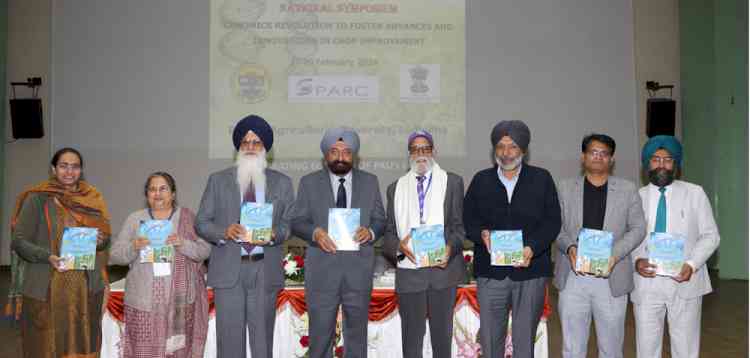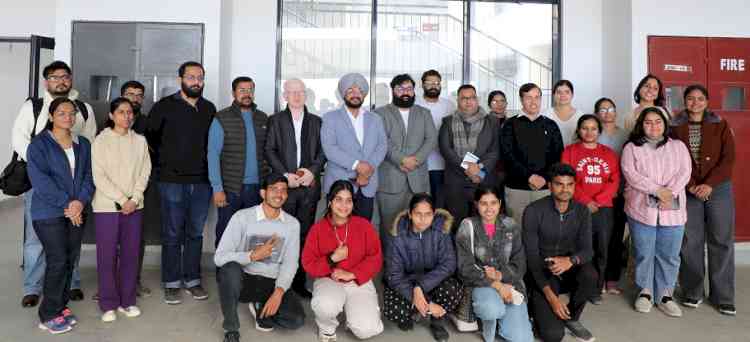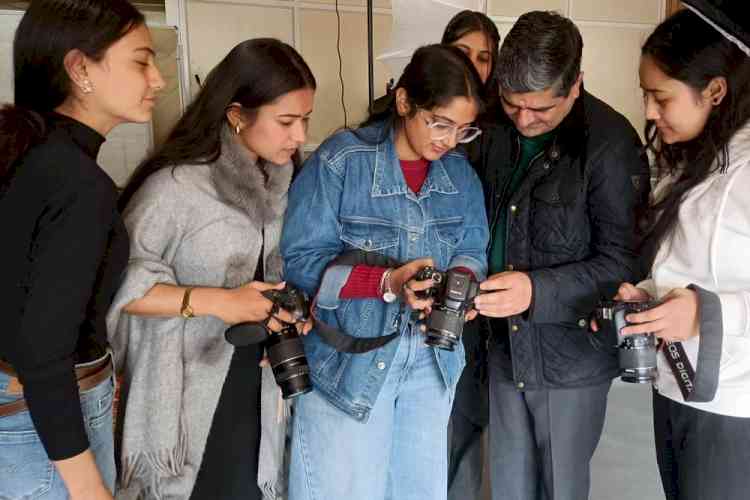National Symposium on Genomics Revolution kicks off at PAU
‘AI’ Application in Biotechnology vital for experimentation: Dr SS Gosal to Scientists

Ludhiana, February 27, 2024: A three-day National Symposium on “Genomics Revolution to Foster Advances and Innovations in Crop Improvement” kicked off at Punjab Agricultural University (PAU) today. Being held under the umbrella of the recently established Dr GS Khush Institute of Genetics and Biotechnology at PAU, the workshop has been supported and facilitated by the Department of Biotechnology, Government of India. Delegates from various parts of India and abroad; deans, directors, faculty, staff and students of PAU attended the inaugural session of the workshop, which has been orchestrated in association with the School of Agricultural Biotechnology, PAU.
In his address, the chief guest Dr Satbir Singh Gosal, Vice-Chancellor, PAU, traced the agricultural revolutionary movement, journeying from huger and starvation in 1947 with India encompassing only 40 crore population, to the self-sufficiency in food grains in the mid-1960s for the ever-increasing population. Calling PAU a “Mother of Green Revolution” that paved way for Punjab to emerge as “Granary of India,” Dr Gosal said that PAU has a strong breeding programme, leading to the development of several landmark crop varieties. Pointing out the grave issue of climate change, he called for the application of Artificial Intelligence (AI) in biotechnology for experimentation and genotyping. With PAU engaged in genome editing, use of molecular markers, etc. and fruitful associations with G20 countries in the domain of biotechnology, the entire focus was on improvement in fields crops such as wheat rice, maize and pulses; horticultural crops like vegetables and flowers; and food crops. Dr Gosal further called upon the experts to delve into the transformative impact of genomics on crop improvement.
Delivering his keynote address on “Genomics of Alien Variation for Crop Improvement,” a renowned wheat scientist Dr Bikram Singh Gill from Wheat Genetics Resource Centre (WGRC), Department of Plant Pathology, Kansas State University, USA, explained Crop Wild Relative (CWR) based genomics assisted crop improvement platform in detail. With genomics being a crucial step, Dr Gill observed that it (genomics) was essential in mapping the target trait, marker assisted breeding, molecular deciphering of the gene, and gene editing for specific end uses.
Dr GS Mangat, Additional Director of Research (Crop Improvement), made a call for adopting cutting-edge technologies in the ever-evolving landscape of agriculture. Informing that this University has a strong genomic programmes on wheat, rice, cotton, and mustard, Dr Mangat stated that the application of novel technology ‘AI’ could go a long way in boosting the crop improvement programme.
Earlier, in her welcome address, Dr Parveen Chhuneja, Director of School of Agricultural Biotechnology, said that the workshop was an excellent opportunity to gather constructive feedback, exchange ideas and foster connections for advancing science of genomics and extending its application the ground.
Dr JS Sandhu, Professor of Agricultural Biotechnology, while coordinating the programme, called for integration of traditional and modern biotechnological tools for crop improvement. Later, he proposed a vote of thanks.
During the workshop, two technical sessions were held today on the thematic areas – Integrating Conventional and New Plant Breeding Technologies; and Genomics Assisted Alien Introgression; while deliberations on Genome Editing for Precision Breeding; and Machine Learning and AI in Crop Genomics; will be held tomorrow. The sessions were chaired by Dr SS Banga, Ex-ICAR National Professor, PAU; and Dr Bikran Singh Gill from WGRC, today; whereas Dr HS Dhaliwal, Former Vice-Chancellor, Eternal University, Baru Sahib; and Dr AR Rao, ADG (Project Implementation and Monitoring), ICAR, will chair the upcoming sessions tomorrow.



 City Air News
City Air News 










